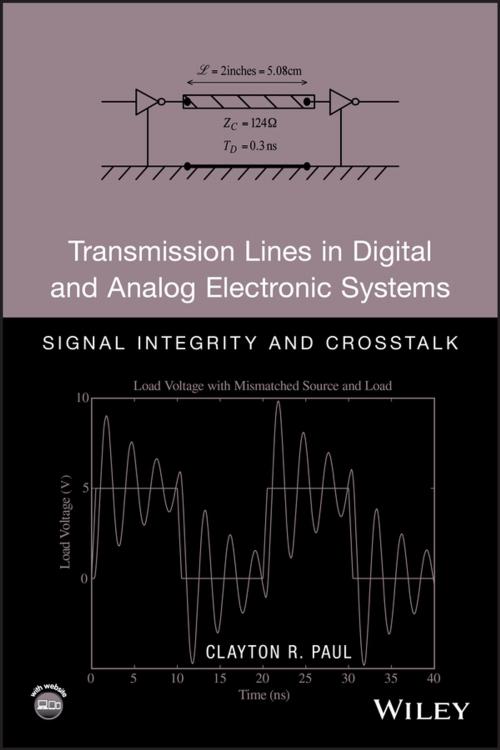Transmission Lines in Digital and Analog Electronic Systems
Signal Integrity and Crosstalk
Nonfiction, Science & Nature, Science, Physics, Electromagnetism| Author: | Clayton R. Paul | ISBN: | 9781118058244 |
| Publisher: | Wiley | Publication: | January 11, 2011 |
| Imprint: | Wiley | Language: | English |
| Author: | Clayton R. Paul |
| ISBN: | 9781118058244 |
| Publisher: | Wiley |
| Publication: | January 11, 2011 |
| Imprint: | Wiley |
| Language: | English |
In the last 30 years there have been dramatic changes in electrical technology--yet the length of the undergraduate curriculum has remained four years. Until some ten years ago, the analysis of transmission lines was a standard topic in the EE and CpE undergraduate curricula. Today most of the undergraduate curricula contain a rather brief study of the analysis of transmission lines in a one-semester junior-level course on electromagnetics. In some schools, this study of transmission lines is relegated to a senior technical elective or has disappeared from the curriculum altogether. This raises a serious problem in the preparation of EE and CpE undergraduates to be competent in the modern industrial world. For the reasons mentioned above, today's undergraduates lack the basic skills to design high-speed digital and high-frequency analog systems. It does little good to write sophisticated software if the hardware is unable to process the instructions. This problem will increase as the speeds and frequencies of these systems continue to increase seemingly without bound. This book is meant to repair that basic deficiency.
In the last 30 years there have been dramatic changes in electrical technology--yet the length of the undergraduate curriculum has remained four years. Until some ten years ago, the analysis of transmission lines was a standard topic in the EE and CpE undergraduate curricula. Today most of the undergraduate curricula contain a rather brief study of the analysis of transmission lines in a one-semester junior-level course on electromagnetics. In some schools, this study of transmission lines is relegated to a senior technical elective or has disappeared from the curriculum altogether. This raises a serious problem in the preparation of EE and CpE undergraduates to be competent in the modern industrial world. For the reasons mentioned above, today's undergraduates lack the basic skills to design high-speed digital and high-frequency analog systems. It does little good to write sophisticated software if the hardware is unable to process the instructions. This problem will increase as the speeds and frequencies of these systems continue to increase seemingly without bound. This book is meant to repair that basic deficiency.















